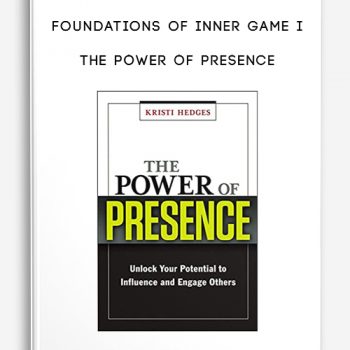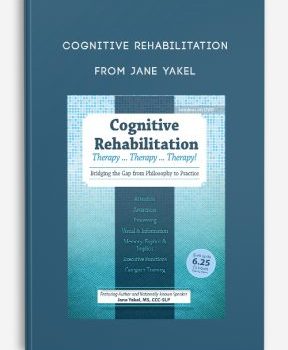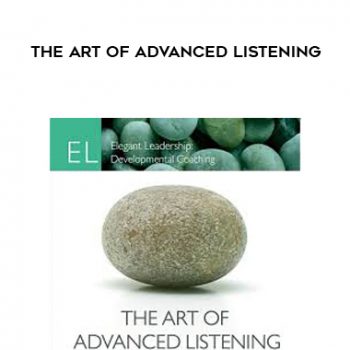 3-Day Nutrition for Mental Health Comprehensive Course from Anne Procyk
3-Day Nutrition for Mental Health Comprehensive Course from Anne Procyk
More information about Medical:
Medicine is the science and practice of establishing the diagnosis, prognosis, treatment, and prevention of disease.
Medicine encompasses a variety of health care practices evolved to maintain and restore health by the prevention and treatment of illness.
Contemporary medicine applies biomedical sciences, biomedical research, genetics, and medical technology to diagnose, treat, and prevent injury and disease,
typically through pharmaceuticals or surgery, but also through therapies as diverse as psychotherapy, external splints and traction, medical devices, biologics, and ionizing radiation, amongst others.
Medicine has been around for thousands of years, during most of which it was an art (an area of skill and knowledge) frequently having connections to the religious and
philosophical beliefs of local culture. For example, a medicine man would apply herbs and say prayers for healing, or an ancient philosopher and physician would apply bloodletting according to the theories of humorism.
In recent centuries, since the advent of modern science, most medicine has become a combination of art and science (both basic and applied, under the umbrella of medical science).
While stitching technique for sutures is an art learned through practice, the knowledge of what happens at the cellular and molecular level in the tissues being stitched arises through science.
Outline:
The Complex Relationship Between Mental and Physical Health
How Foods Affect Moods
- Carbohydrates – A new way to think about cravings
- Effects protein may have on depression and anxiety
- Fats for mental health (depression, ADHD, bipolar)
- The connection between food, depression and anxiety
- Vitamins: B-Vitamins, 5-MTHF, Vitamin D
- Minerals: Magnesium, calcium
Nutrition, Diet and Culinary Medicine
- Food as “brain-mind-medicine”
- Fats: Essential fatty acids, toxic fats, fish oil
- Protein: the building blocks of happiness
- Nutrients to improve mental health and cognitive function
- Vitamins, minerals, glandulars, and special nutrients for the non-nutritionist
- Regulate hormonal imbalance
- Balance blood sugar to balance mood
- Cultural and genetic variations
- Enhance digestion for mental health
- Thyroid function and mental health
The Truth About Popular Supplements and Herbal Medicine
- Seven major herbs for PTSD, anxiety, depression, sleep, and cognitive health
- Endocannabinoid deficit theory
- Cannabis and psychedelic medicine
- THC versus CBD
- Evidence for medical cannabis for mental health PTSD and chronic pain
- Adaptogens: Ginseng, licorice, ashwaganda
- Melatonin
- Smell, mood, and cognition
- Evidence for essential oils to alter mood and cognition
- Interactions with pharmaceuticals
Physiological Factors of Depression, Anxiety, Bipolar and ADHD
- Transcending mind-body separation: Understanding the complex relationships
- The factors that cause “chemical imbalance”
- Beyond pharmaceutical management
- Balancing circadian rhythm
- Apply breathing exercises for mental health
- Enhance sleep and address insomnia
Assessments and Evidence-Based Research
Assessments Using Integrative Approaches
- Conduct a basic nutritional food/mood assessment
- Conduct an adrenal stress and biological rhythm assessment
- Culture and ethnicity assessment and treatment
- The Cultural Formulation Interview and CAM methods
- Basic lab tests for optimal mental health
Simple Screening Tools to Identify Nutritional Deficiencies Contributing to:
- Anxiety and PTSD
- Depression
- ADHD
- Fatigue
- Anger
- Bipolar disorder
- Lack of mental clarity
- Other mental health concerns
Recognizing When “Mental Illness” is Something Else
- Hormonal imbalance
- Anxiety vs. hypoglycemia
- Inflammation
- Digestion
- Depressed, fatigued or malnourished?
- Side effects of medications
Symptoms of Nutritional Deficiencies and Co-Morbid Conditions
- Strategies to reduce inflammation: The major factor in depression, anxiety, bipolar, and ADHD
- Chronic illness, fibromyalgia
- Anxiety and digestion
- The Second brain: Microbiome, probiotics and GABA, and anxiety
- Sleep, adrenal health, and rhythms
- Anger, alcohol abuse and liver health
- Genetics, depression and brain
- PTSD and auto immune, addictions and cognition
- ADHD, ASD, and food sensitivities
- Integrative approach recovery from addictions
Clinical Applications – Non-Pharmaceutical Treatment Strategies
Holistic Treatment Interventions
- Address clients concerns and provide alternatives to psychotropics
- Herbal medicine for mental health
- Strategies for clients who want to stop their medications
- Ayurvedic medicine and mental health
- Exercise: Elevate serotonin and regulate stress hormones
- Sound and music for insomnia, anxiety and anger
- Toning, binaural music
Comprehensive Non-Pharmaceutical Treatment Plans and Protocols for:
- Depression & Seasonal Affect Disorder
- Anxiety, PTSD, and complex trauma
- Bipolar
- ADHD
- Body dysmorphia
- OCD
- Bulimia
- Insomnia
- Addictions
- Obesity
- Psychosomatic symptoms
- Pre-menstrual syndrome and menopausal symptoms
Practical Tools to Accelerate Treatment Results, Improve Energy, and Gain Mental Clarity
- Food: The Good, the Bad, and the Fake
- Sleep: The 4 habits critical to refreshing sleep
- Exercise: Elevate serotonin and regulate stress hormones
- Stress: A Holistic Approach
- Feed your brain
What You Need to Know about Somatic Therapies
- The spectrum of somatic and bodywork therapies
- Acupuncture
- The NADA protocol for addictions
- Cranial electrical stimulation for PTSD, insomnia, and optimal cognition
- When to refer
Unique Issues Across the Lifespan
- Children: Supporting sleep, focus, mood and attention
- Alternatives to psychotropics for ADHD
- Middle life: Peri-menopause, menopause, andropause
- Preventing cognitive decline
- Nutrition and integrative methods to support people with dementia and their caregivers
Apply Techniques Within Your Scope of Practice
- Ethics, law and competency
- Nutritional therapies
- Culinary medicine
- Behavioral medicine
- Nutritional supplementation
- Herbal medicine
- Hydrotherapies for mood management
- Bodywork therapies
- Acupuncture and cranial electrical stimulation
- Sound and music for insomnia and mood
- Stage appropriate yoga for anxiety, pain and PTSD
- Integrative detoxification for addiction
Build an Integrative Health Team
- When and where to refer clients
- How to find the right provider
- Questions to ask before referring
- Develop a niche practice as a certified specialist
- Professional organizations and more training
- Controversies and hot topics
Description:
Here’s what you’ll learn in this comprehensive training …
- Improve mood and behavior in clients using micro- and macronutrients
- Ideas for practical, affordable and individualized diets along with optimal cooking methods and recipes
- Safely and ethically apply integrated and nutritional medicine within your professional discipline’s scope of practice
- Improve assessment by learning to differentiate between a clinical presentation of mental illness vs. nutritional and/or hormonal imbalances
- Customize treatment plans through six unique nutrition methods for clients with mood lability
- Nourish both the brain and the gut, , the “second brain” through key nutrients
- Learn to identify gluten and casein sensitivity with the presentation of depression, psychosis and ASD in clients
- Implement evidence-based protocols for nutrition and herbal approaches for six DSM-5® categories
- Evaluate how client eating patterns may influence their mental health by using a food-mood assessment tool
- Increase compliance by using the DSM-5® Cultural Formulation tool to inform your treatment planning process
- Prevent side effects of polymedicine use through evaluation of drug-nutrient-herbal interactions
- Decrease dissociative symptoms in clients through stage-specific anaerobic and aerobic exercise and self-care methods
- Improve focus for clients with anxiety disorders with breathing techniques to reduce hyperventilation
- Adapt complementary and alternative methods for children and teens with behavioral and mental health disorders such as ADHD and ODD
- Learn when psychotropic medications, herbal medicines, and nutrients can be harmful to clients
- Improve anxiety and depression symptoms with essential fatty acids
- Discover how circadian rhythm contributes to depression, PTSD and bipolar disorder
- Evaluate the impact of blood sugar and genetic variations on mental health disorders and effective treatment













tristian –
This is Digital Download service, the course is available at Coursecui.com and Email download delivery.